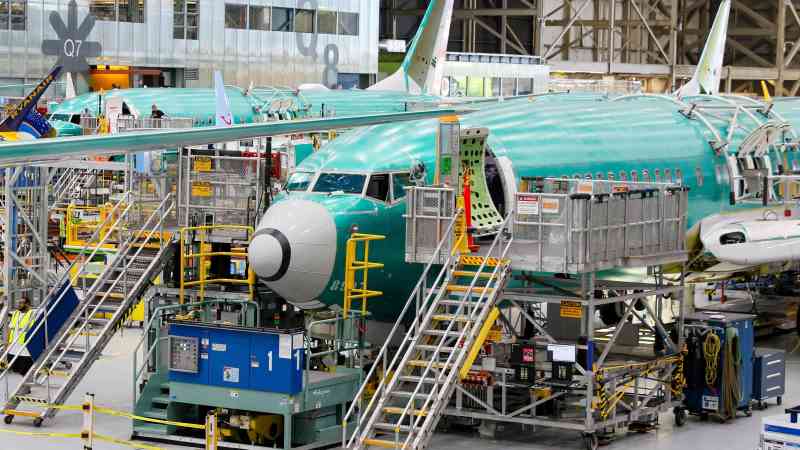Boeing has been forced to halt the production of its bestselling passenger jets after factory workers went on strike for the first time in 16 years.
The company was scrambling to resume talks with workers who make the 737 Max and other models after about 30,000 union members who build passenger jets on the west coast of America voted to reject a deal that included a 25 per cent pay increase over four years. Workers have demanded a 40 per cent pay rise.
“This is about respect, this is about addressing the past and this is about fighting for our future,” said Jon Holden, who led the talks for Boeing’s largest union, the International Association of Machinists and Aerospace Workers.
Boeing builds the 737 Max at its Renton factory on the outskirts of Seattle and makes 777 and 767 models at its Everett facility to the north of the city.
Last Sunday union leaders recommended that their members accept Boeing’s offer, but many staff at the manufacturer responded angrily and they stopped work on Friday after rejecting the deal. It is the first strike at the company since 2008 and comes weeks after Kelly Ortberg was appointed chief executive to restore the company’s reputation after a door panel blew off a 737 Max jet during a flight in January.
Boeing said that the vote sent a clear message that the tentative deal it had reached with the union’s leadership was not acceptable to members. “We remain committed to resetting our relationship with our employees and the union and we are ready to get back to the table to reach a new agreement,” it said.
In a letter to workers before the vote, Ortberg, 64, had said: “A strike would put our shared recovery in jeopardy, further eroding trust with our customers and hurting our ability to determine our future together.”
The existing contract between Boeing and the unions was reached in 2008 after an eight-week strike that cost the company about $1.5 billion a month, according to Moody’s, the credit rating agency. S&P Global Ratings, another credit rating agency, said that an extended strike could delay the aircraft maker’s recovery and hurt its overall rating. Both S&P and Moody’s rate Boeing’s shares one notch above junk status.
The strike also risks disrupting Boeing’s aircraft deliveries and its broader supply chain.
Boeing’s shares closed down by $6.00, or 3.7 per cent, at $156.77 in New York on Friday. They have fallen by more than 36 per cent this year amid concerns over safety, production and the company’s $60 billion debt.
